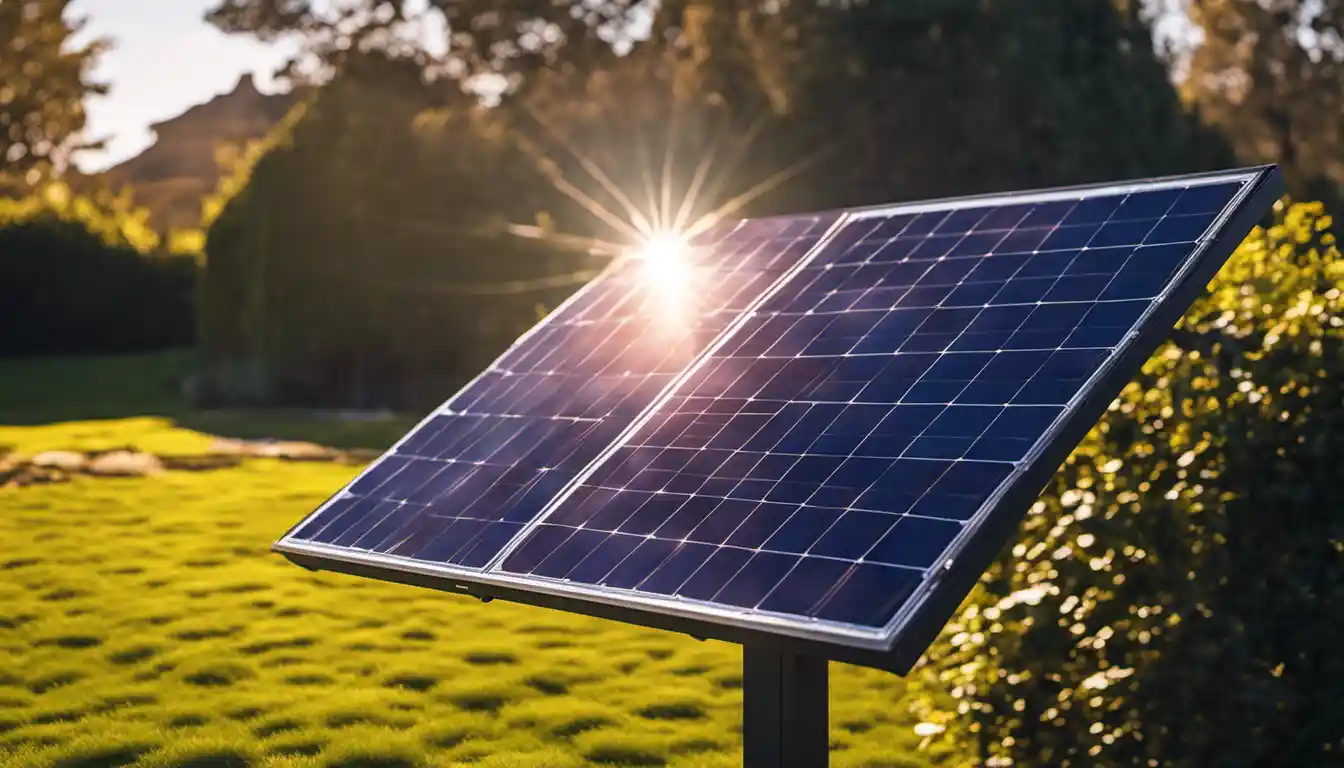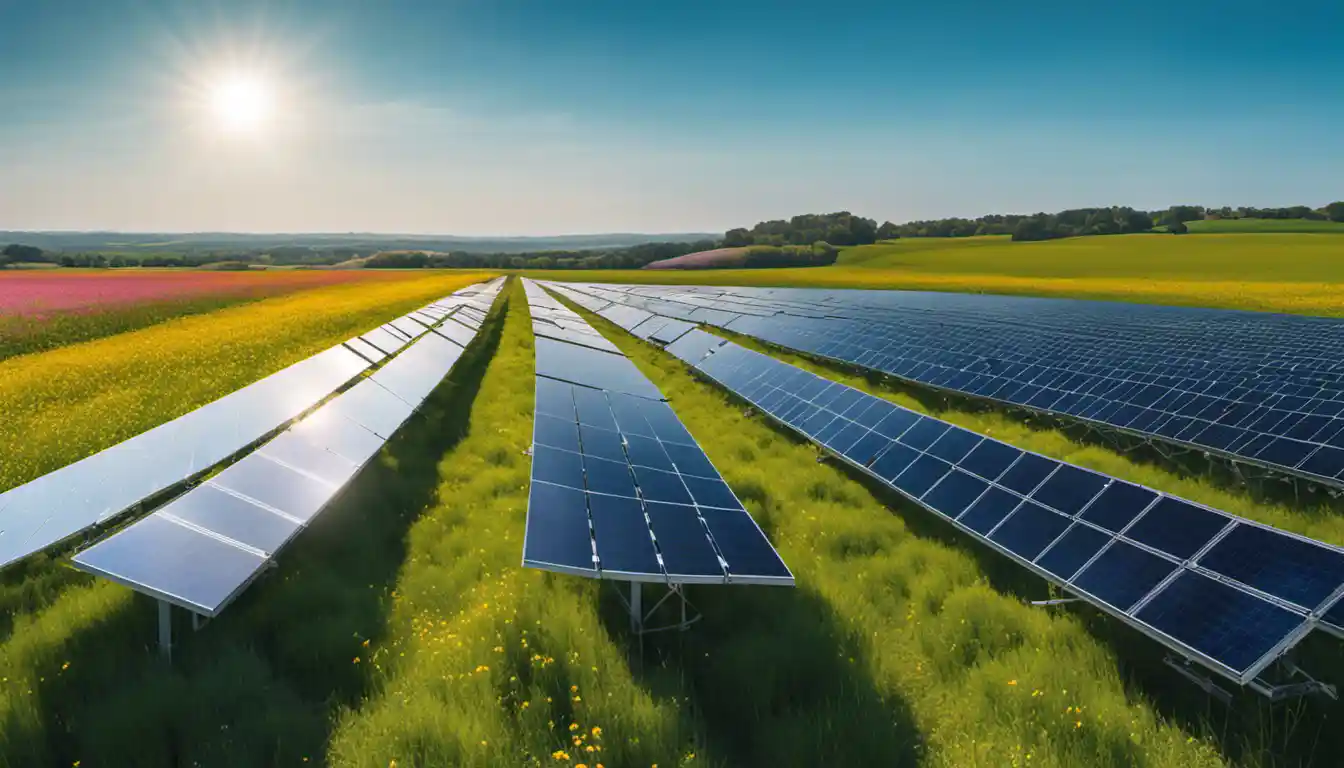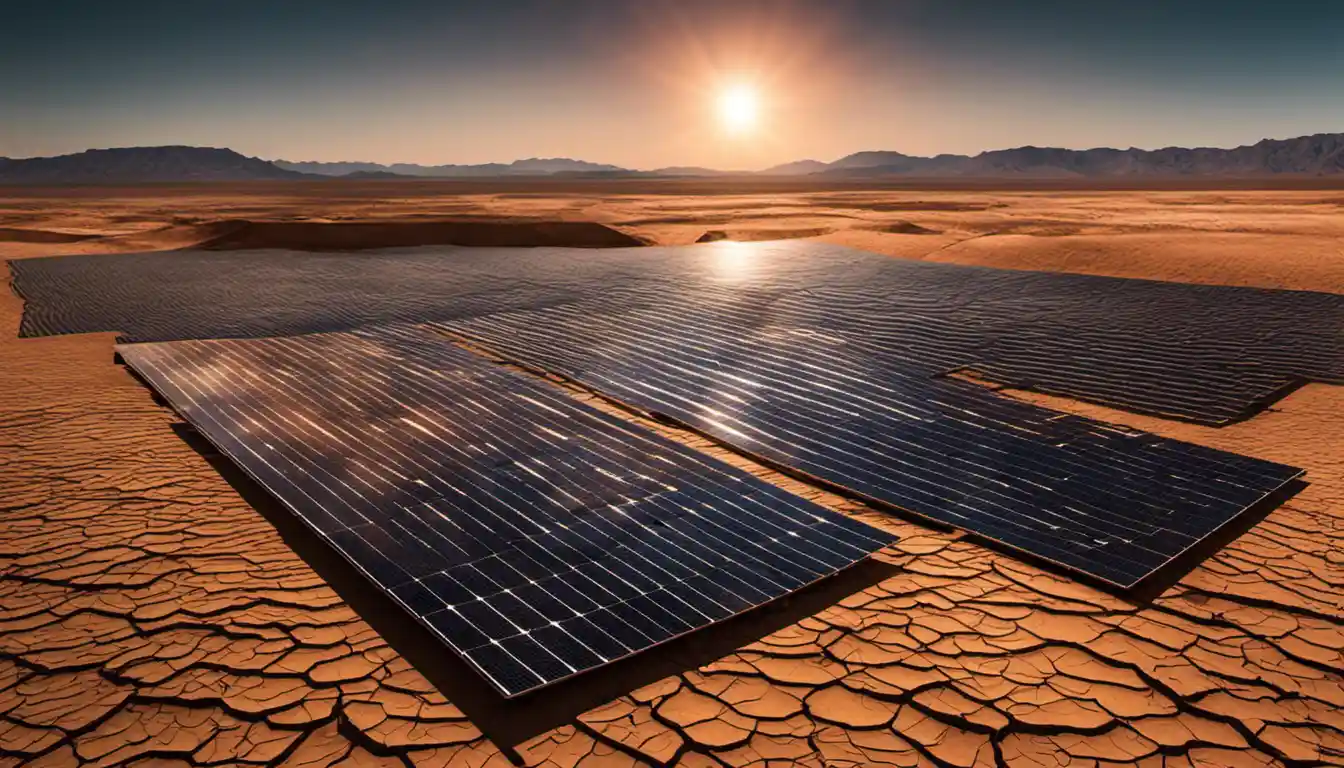Overview of Solar Panels and Temperature
Yes, temperature does affect solar panels. High temperatures can reduce the efficiency of solar panels, causing a decrease in electricity production. Each panel has a specific temperature coefficient that states how much the output will decrease for every degree above 25°C (or 77°F).
The Mechanism of Solar Panels
Before answering the question “does temperature affect solar panels?”, let’s delve into understanding how these panels function. Solar panels convert sunlight into electricity using a phenomenon known as the photovoltaic effect, a process which can be affected by temperature.
The Role of Photons
The process begins when particles of light, known as photons, bombard the panel. These photons have enough energy to knock electrons loose from their atoms. This phenomenon leads to the creation of electricity, which then gets harvested for further use.
Photovoltaic Effect
It’s during the photovoltaic effect where temperature’s influence becomes crucial. The efficiency of this conversion process can be affected by several external factors, including the angle of sunlight, the type of photovoltaic cell, and most important to our discussion, temperature.
Effect of Temperature on Solar Panel Efficiency
Contrary to common belief, solar panels prefer cooler temperatures. While the panels still need sunlight to create electricity, high temperatures can reduce their efficiency. Here’s why.
Understanding the Temperature Coefficient

Every solar panel has a unique trait known as the temperature coefficient, which essentially shows just how much a panel’s electricity production declines when the temperature surpasses 25°C (or 77°F).
How Output Voltage Changes with Temperature
The essence of the effect of temperature on solar panel efficiency lies in how output voltage, not current, changes with temperature. When the temperature rises, the output voltage decreases significantly, while the current remains relatively unchanged. This drop in output voltage leads to a decrease in the power produced by the panel.
Does Heat Affect Solar Panel Performance?
In summary, yes, heat does affect solar panel performance. The impact mostly results from rising temperatures exceeding optimal conditions, usually about 25°C (77°F). Let’s take a closer look.
The Impact of Rising Temperatures
Increased heat diminishes output through a reduction in voltage, as we just discussed. It’s somewhat like running a marathon in the sweltering summer heat. The performance decline wouldn’t be because you are less capable, but because the conditions aren’t suitable. Similarly, the solar panel’s electron activity slows down, reducing its overall efficiency.
Temperature Above 25°C (77°F) and Panel’s Efficiency
Most solar panels can achieve peak efficiency at roughly 25°C (77°F), a staple element in panel design. At this temperature, not only do the panels offer effective power conversion, but they also provide reliability and durability. However, once the temperature rises above 25°C, the efficiency typically decreases.
At What Temperature are Solar Panels Most Efficient?
Now, let’s address “at what temperature are solar panels most efficient?” Drill this into your memory — 25°C or 77°F. This is the sweet spot for your solar panels.
Optimal Range for Efficiency

This optimal temperature range might seem counterintuitive considering many people associate more heat with more power. However, remember, while solar panels need sunlight for energy, they perform best in cooler conditions.
Efficiency Decline after the Optimal Range
Most panels’ efficiency drops by about 0.5% for each degree Celsius rise in temperature above 25°C. That means if the temperature is 35°C (95°F), the panel will be operating at roughly 95% of its maximum efficiency.
Optimal Temperature for Solar Panels
Thinking about the “optimal temperature for solar panels”, there’s a valid reason why 25°C is the magic number.
Why 25°C (77°F) is Considered Optimal
25°C strikes a balance—hot enough to facilitate a healthy photon/electron interaction, but cool enough not to obstruct the voltage output.
Decrease in Efficiency per Degree Increase after the Optimal Temperature
For every degree above this, remember there’s a small decline in efficiency. Although it might not sound much, these slight drops add up over hot days or in warmer climates. It can make a difference to your solar panel’s overall power output.
What Temperature Do Solar Panels Stop Working?
The next question on many minds is, “What temperature do solar panels stop working?” Well, solar panels don’t exactly ‘stop working’ at high temperatures. But, as we mentioned earlier, high temperatures can significantly cut efficiency.
The Impact of Extreme Temperatures

Of course, like any equipment, solar panels have an upper limit. Most panels are tested for usability up to about 85°C (185°F). Beyond this, the panel’s durability, reliability, and effectiveness become threatened.
Measures to Reduce Heat Impact
Luckily, even in hot climates, the temperature very rarely breaches this limit if the panels are correctly installed with sufficient ventilation. Similar to how you might use a parasol to keep cool on the beach, solar panels can use shade, the wind, and ambient night temperatures to cool down effectively. You can learn more about this on our page on how weather affects solar panels.
Reducing the Effects of Heat on Solar Panels
Fret not. Even with the knowledge that temperature does affect solar panels, you’re not bereft of choices. You can still maximize efficiency.
Proper Installation
Firstly, ensure that your panels are correctly installed. A slight tilt and elevated positioning can reduce heat absorption, keeping your panel close to the optimal temperature longer.
Adequate Ventilation
Next, adequate ventilation is crucial. Good airflow around the panels helps dissipate accumulated heat, enhancing efficiency. It’s also important to select equipment that can withstand the specific temperature ranges typical for your area.
Use of Cooling Systems
Finally, although not common due to added complexity, some larger solar installations use active cooling systems, like water cooling, to keep temperatures in check, ensuring the smooth running of the system.
Unveiling these truths and busting common myths helps us understand how “temperature does affect solar panels” and how to cope with it. Remember, every degree counts. The cooler you can keep your solar panels, the more efficiently they’ll generate power. Temperature management, in tandem with other factors like proper angle and positioning, can help you make the most of your solar installation. Harness the power of the sun, intelligently.



